ICF is a durable, energy-efficient, and disaster-resilient material ideal for construction. Therefore, How Much Are ICF Blocks is getting more attention.
What are ICF Blocks?
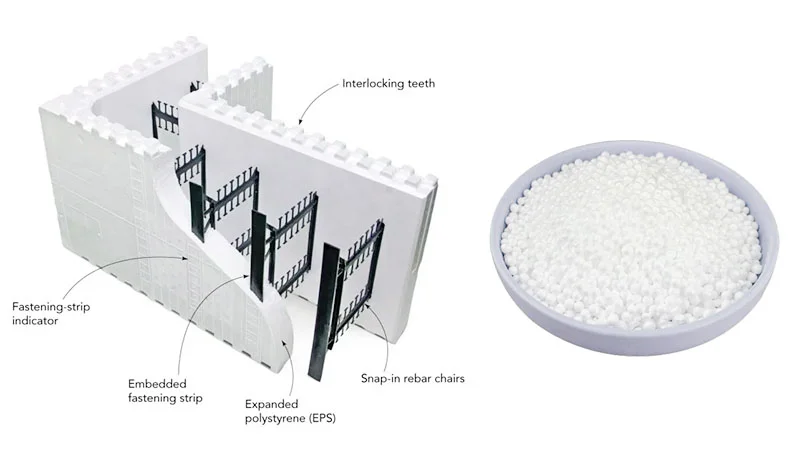
Insulating concrete forms (ICFs) result in cast-in-place concrete walls that are sandwiched between two layers of insulation material.
ICF (Insulated Concrete Form) blocks are typically made from expanded polystyrene (EPS) foam or extruded polystyrene (XPS) foam.
How Much Are ICF Blocks?
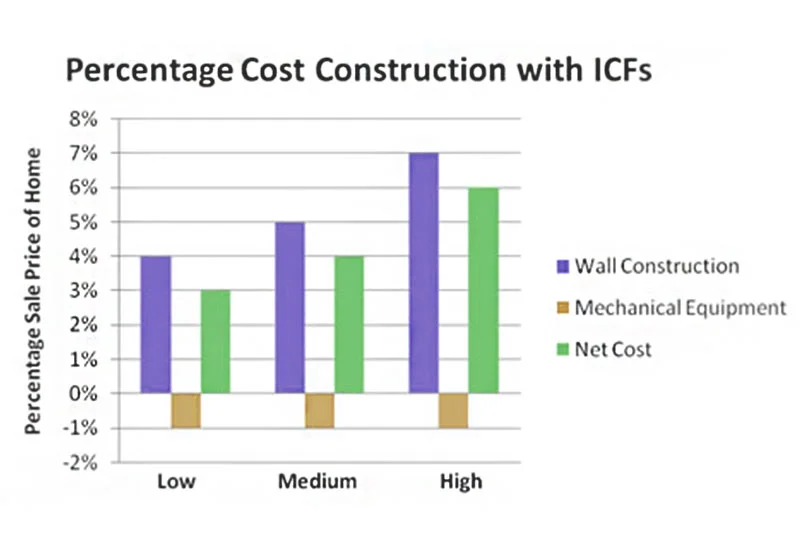
How Much Are ICF Blocks : ICF Blocks Cost Per Square Foot
Material Cost :
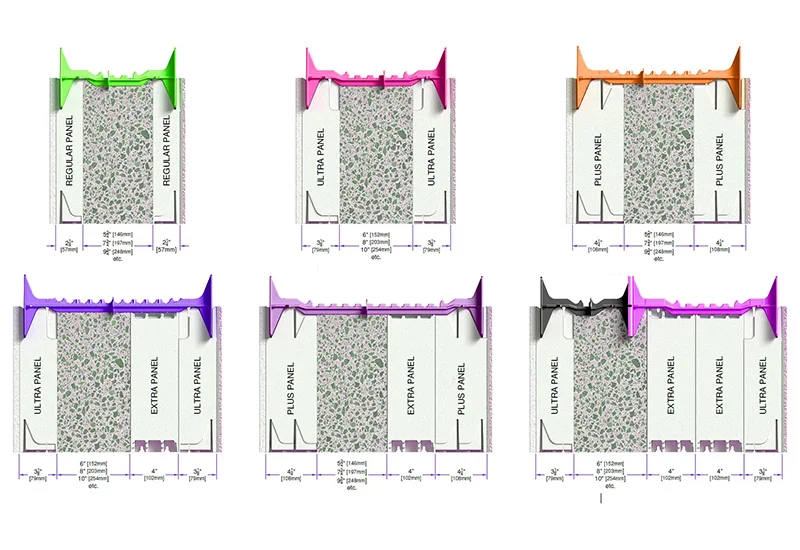
The primary cost component of ICF blocks is the materials themselves. The price per square foot varies depending on the type and brand of blocks chosen. Additionally, factors such as block thickness and insulation R-value can impact the overall material costs.
ICF (Insulated Concrete Form) blocks come in various thicknesses, typically ranging from 4 inches to 12 inches.
As for the insulation R-value, it also varies depending on the thickness and type of foam used in the ICF blocks. Generally, ICF blocks offer high levels of insulation due to the foam material they are made from. The R-value typically ranges from around R-17 to R-30 per inch of thickness for EPS foam.
How Much Are ICF Blocks : ICF Blocks Total Project Cost Estimation
Labor Cost :
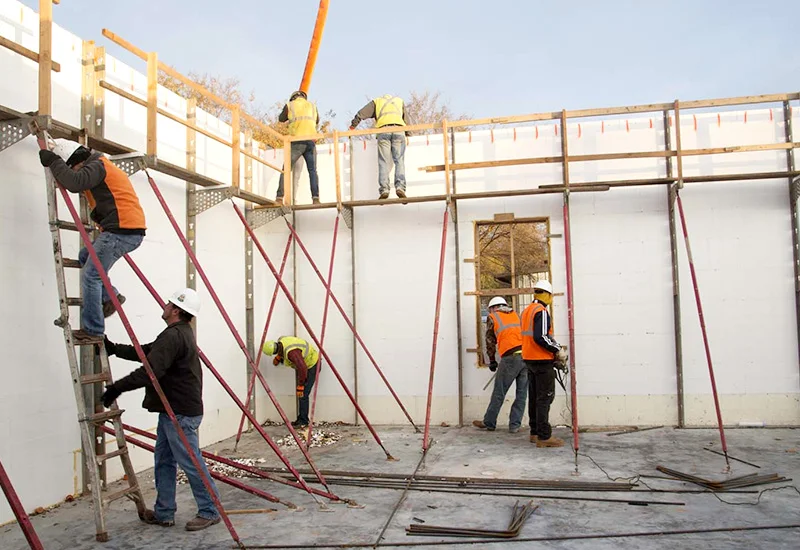
The cost of labor for installing the ICF blocks. This can vary depending on the complexity of the project and the local labor rates.
Labor costs associated with installing ICF blocks include skilled labor for assembly, concrete pouring, and finishing. The complexity of the design and the experience level of the construction crew can influence labor expenses significantly.
Transportation Cost :
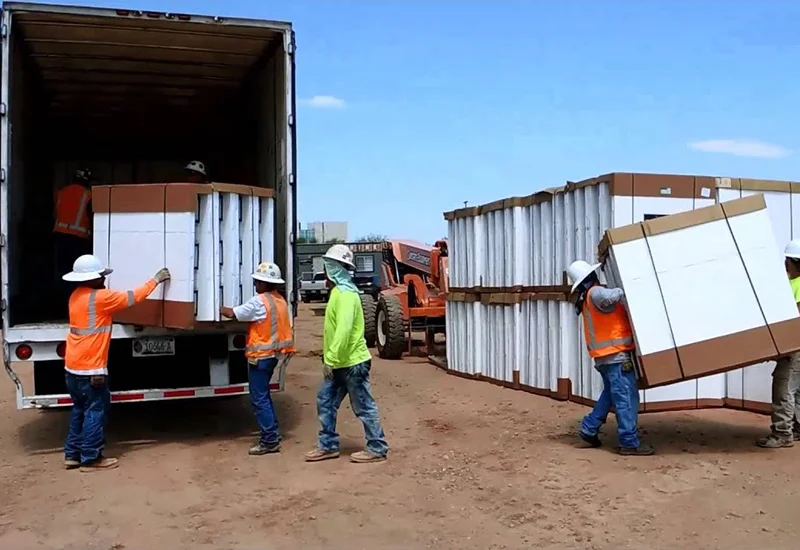
The cost of transporting the ICF blocks to the construction site. This can vary depending on the distance to the supplier and any additional delivery fees.
Geographical location plays a significant role in determining ICF block costs due to variations in material availability, labor rates, and building code requirements. Urban areas with higher living expenses may incur higher construction costs compared to rural regions.
Site Preparation:
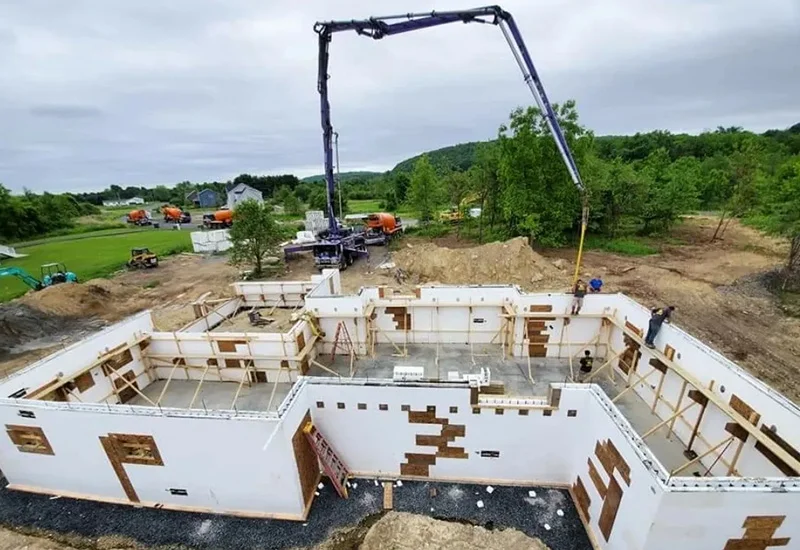
Preparing the construction site for ICF installation involves excavation, site grading, and foundation preparation.
There may be additional costs associated with ICF construction, such as waterproofing, finishing, and any specialized equipment needed for installation.
Additional Features:
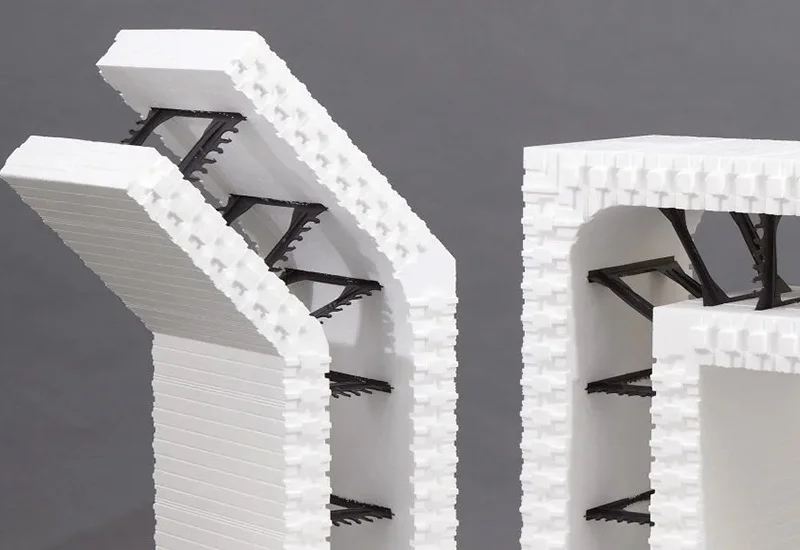
Additional features such as window and door openings, corner configurations, and special architectural details can affect the complexity of the ICF installation process, thereby influencing costs.
How Much Are ICF Blocks: ICF Blocks Cost Comparison with Traditional Building Methods
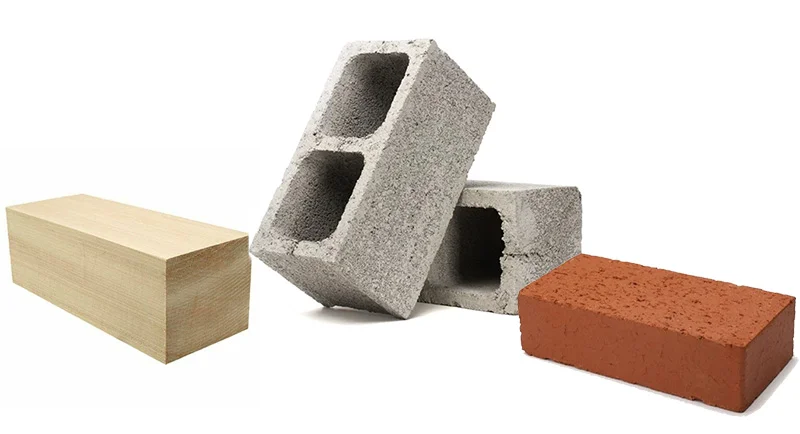
| Construction Method | Cost Comparison |
|---|---|
| ICF vs. Concrete Block | ICF construction typically has a higher initial cost compared to traditional concrete block construction due to the added expense of the insulating foam blocks. However, ICF construction may result in long-term savings due to improved energy efficiency. |
| ICF vs. Wood | ICF construction tends to have a higher upfront cost compared to wood construction. However, ICF offers better insulation and energy efficiency, potentially leading to savings on heating and cooling costs over time. Wood construction might have lower initial costs but may require more maintenance and could have higher long-term expenses. |
| ICF vs. Brick-and-Block | ICF construction generally has a higher initial cost compared to traditional brick-and-block construction due to the added expense of the insulating foam blocks. However, ICF construction can provide better insulation and energy efficiency, potentially leading to long-term savings on heating and cooling costs. Brick-and-block construction might have lower initial costs but may have higher long-term maintenance expenses and may not offer the same level of insulation. |
How Much Are ICF Blocks: Discover Tips for Cost-Effective ICF Construction
Plan Efficiently and Optimize Material Usage
Offer strategies for efficient project planning and material management to minimize waste and reduce overall construction costs.
Consider DIY Options
Discuss the feasibility of DIY ICF construction for smaller-scale projects, highlighting potential cost savings but also emphasizing the importance of proper training and expertise.
Explore Financing and Incentive Programs
Inform readers about financing options and government incentive programs available for energy-efficient construction projects utilizing ICF blocks, potentially offsetting upfront costs.
Benefits of Using ICF Blocks
Now that we understand how much are icf blocks, we control costs and maximize the advantages of icf blocks.
Superior Insulation Properties:
One of the primary benefits of ICF blocks is their exceptional insulation capabilities.
Enhanced Energy Efficiency:
By maintaining consistent indoor temperatures, ICF blocks contribute to significant energy savings over the lifespan of a building. systems.
Durability and Structural Strength:
ICF construction results in solid, reinforced concrete walls that offer exceptional durability and structural integrity.
Noise Reduction:
The dense composition of ICF walls effectively absorbs and dampens sound, resulting in quieter indoor environments.
Speed of Construction: The interlocking design of ICF blocks and simplified construction process contribute to faster build times compared to traditional methods.
FAQs
Are ICF Blocks Expensive?
ICF blocks may have a higher initial cost compared to traditional building materials, but their long-term benefits often outweigh the upfront investment.
What Determines the Cost of ICF Blocks?
Several factors influence the cost of ICF blocks, including market demand, geographic location, block thickness, design complexity, and additional features.
Can I Save Money by Using ICF Blocks?
While the initial cost of ICF blocks may be higher, their energy-saving properties can result in significant long-term savings on heating and cooling expenses.
Are ICF Blocks Worth the Investment?
Yes, ICF blocks offer numerous benefits such as energy efficiency, durability, and disaster resistance, making them a worthwhile investment for both residential and commercial construction projects.
How Do I Calculate the Cost of ICF Blocks for My Project?
To estimate the cost of ICF blocks for your project, multiply the average price per square foot by the total square footage of wall space required.
Are There Financing Options Available for ICF Construction?
Yes, many financial institutions offer loans and mortgages tailored to energy-efficient construction projects, including those using ICF blocks.
Conclusion
In conclusion, how much are ICF blocks, understanding the cost dynamics of ICF blocks is crucial for making informed decisions in construction projects.
By considering factors such as market trends, geographical variations, and project-specific requirements, individuals can assess the feasibility and cost-effectiveness of incorporating ICF blocks into their building endeavors.
Despite the initial investment, the long-term benefits of energy efficiency, durability, and resilience make ICF construction a compelling choice for modern builders.
